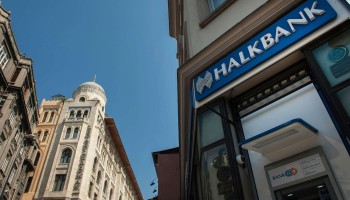Tuesday's vote winds up a one-year inquiry, set up on March 1, 2018 in the aftermath of the Paradise Papers and Panama Papers revelations, with 505 in favor and 63 against the report of the Special committee on financial crimes, tax evasion and tax, dubbed TAX3 for short.
Among the adopted findings is the conclusion that “several European banks have been involved in the Russian ‘Troika Laundromat’ money-laundering,” and that these include: Danske Bank, Swedbank, Nordea Bank, ING, Credit Agricole, Deutsche Bank, KBC Group, Raiffeisen Bank, ABN Amro Group, Cooperatieve Rabobank and the Dutch unit of Turkiye Garanti Bankasi.
The vote may now prompt the European Commission to carry out checks on the laws and regulations of member states to address money laundering and financial crimes.
As well as the anti-money laundering watchdog and the financial police force, the vote sets in motion the phase out of the Golden Visa program “with those offered by Malta and Cyprus singled out for their weak due diligence.”
Co-rapporteur Ludek Niedermayer, the Czech representative to the European Parliament, has previously said that the Committee had found the program was of little economic benefit for the countries who partook in it.
Other adopted findings include that seven member states “display traits of a tax haven.”
Belgium, Cyprus, Hungary, Ireland, Luxembourg, Malta and The Netherlands contribute to the undermining of the EU’s single market. Weaknesses in their tax systems result in a loss of some €43 billion (US $48 million) from EU member states, according to a Committee report.
Malta’s Financial Intelligence Unit was accused of breaching EU law in respect to its failure to conduct effective supervision of Pilatus Bank, due to “procedural deficiencies and a lack of supervisory actions”.
Co-rapporteur Jeppe Kofod, a Danish representative to the European Parliament, previously spoke of the fact that often those who commit or facilitate financial crimes do not face consequences.
Kofod pointed out that the EU was now on the fifth anti-money laundering directive, and the political willingness to tackle financial crime was lacking.
The Committee's chair Petr Ježek said that “member states are not doing enough and in the EU, the Council is clearly the weakest link. Without political will, there can be no progress. Europeans deserve better.”






